Latest News From Health Monitoring
Keeping you up to date on recent initiatives, software enhancements, and the national conversation about public health
Keeping you up to date on recent initiatives, software enhancements, and the national conversation about public health
EpiCenter users now have the opportunity to compare current data with historical data to gain a clearer perspective on potential threats to public health.
Andy Walsh, PhD, HMS Director of Public Health Solutions The inclusion of syndromic surveillance reporting in the Meaningful Use requirements has created an unprecedented opportunity for the field. By crafting guidelines for how to define that reporting, the syndromic surveillance community can have a significant impact on the way that public health agencies and healthcare […]
Health Information Exchange (HIE) provides the opportunity for Public Health professionals to access a wider range of data—from Syndromic Surveillance to notifiable conditions, immunization, and health registries.
On March 7, 2012, Meaningful Use Stage 2 requirements were released for public comment. The finalized requirements are expected this summer after the 60-day comment period expires.
Health Monitoring Systems is committed to providing Public Health professionals with resources that give insight into Meaningful Use, Health Information Exchange, and Syndromic Surveillance challenges.
On Tuesday, May 29, the Health Information and Technology Practice Group and the Public Sector Health Lawyers Task Force will hold a webinar to explore Stage 2 Meaningful Use criteria regarding electronic reporting. The webinar, “Public Health Reporting Through a Health Information Exchange,” will cover techniques for streamlining or automating mandatory reporting for infectious disease surveillance and other public health reporting requirements. Panels will explore models for electronic reporting and address security safeguards.
Learn more and register for the webinar at The American Health Lawyers Association website.
We encourage you to continue an open dialogue about Meaningful use and Health Information Exchange by commenting on our blogs.
Penn Krause, HMS’ Vice President of Business Development, has previously served as a CEO, COO, and Division Vice President in non-profit and investor-owned healthcare systems. During his tenure as COO of the Pittsburgh Mercy Health System, the system was named one of Hospitals and Health Networks “Most Wired.”
In a recent HealthData Management article, Joseph Goedert writes, “sales of electronic health records (EHR) systems hit $17.9 billion in 2011, a 14.2 percent increase over the previous year, according to an annual study from Kalorama Information, a New York-based research firm.”
As the adoption of EHRs accelerates, more hospitals are working to understand the financial and technical requirements of Syndromic Surveillance Implementation.
EHR implementation can be a challenge for even the most skilled IT department. Syndromic Surveillance is just one part of the bigger EHR picture. The biggest areas of concern involve:
Additionally, the up front cost of an EHR is a concern. While compliance ensures receipt of Medicare and Medicaid incentives, getting an EHR system up and running is costly—both in terms of time and money.
Stage 2 Meaningful Use implementation becomes mandatory in 2014, so long term planning is critical to address the challenges involved.
Addressing these complex issues now will help hospitals to plan well for Syndromic Surveillance implementation. This will help to ease the transition to stage 2.
Our mission: Provide services that focus healthcare resources on existing and emergent threats to community health.
Our customers: State and local public health departments and health systems. We currently serve Connecticut, New Jersey, Pennsylvania, Ohio, Wyoming, and several counties in California, covering a total of more than 40 million people.
What we do: Monitor real-time health-related data for community health indicators. We collect data from nearly 600 hospitals and 3,600 ambulatory systems.
Support email:
support@health-monitoring.com
Emergency support: 1 (844) 231-5776
Additional guidance:
EpiCenter User Manual
700 River Ave., Suite 130
Pittsburgh, PA 15212
Corporate office: 1 (412) 231-2020
General calls: 1 (844) 231-5774
Emergency support: 1 (844) 231-5776

